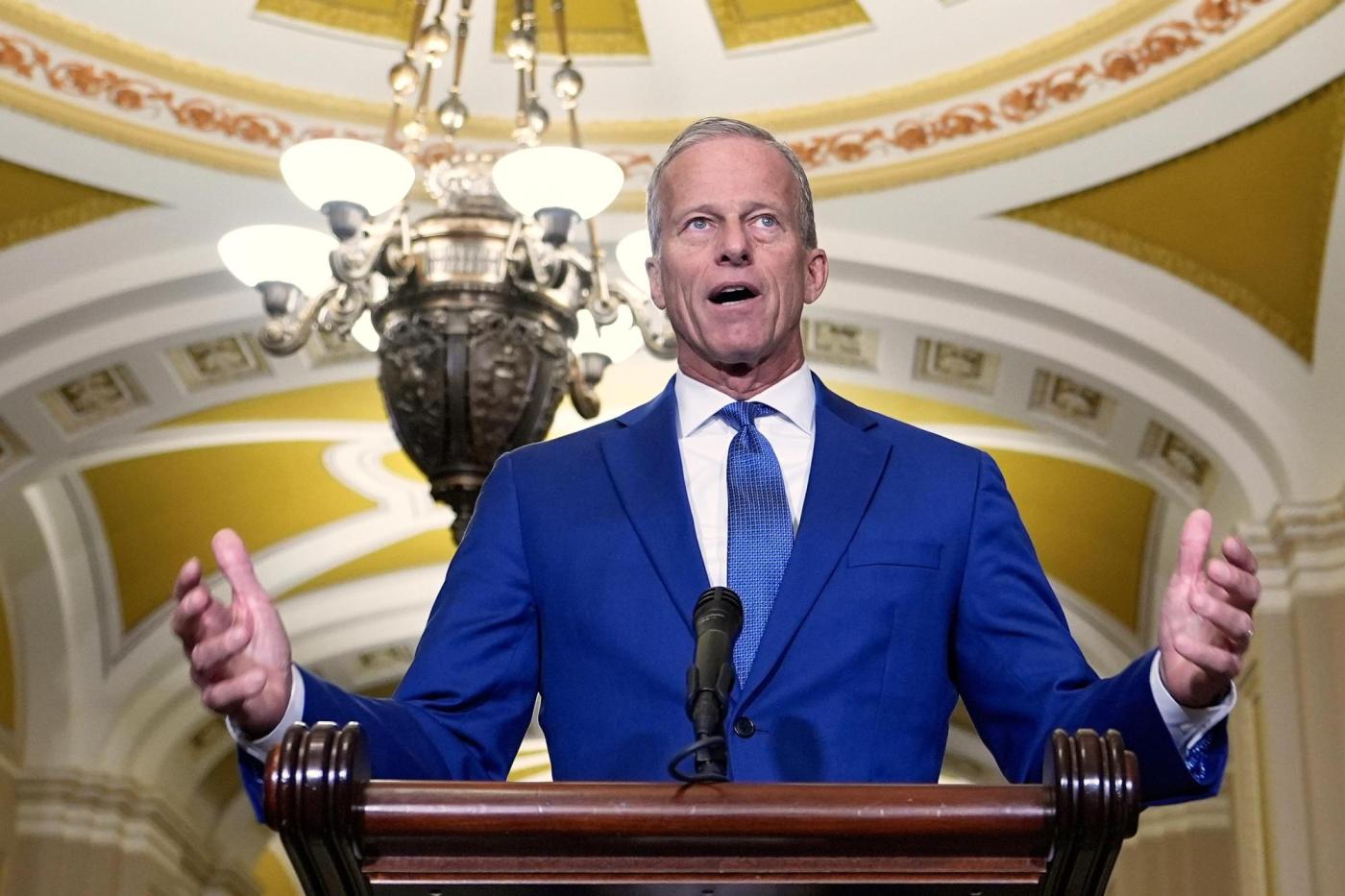
By KEVIN FREKING
WASHINGTON (AP) — Senate Republicans were exploring changes Tuesday to President Donald Trump’s request to cancel $9.4 billion in previously approved spending targeted by his Department of Government Efficiency, signaling potential difficulties ahead of an important test vote.
Related Articles
The tariff-driven US inflation that economists feared begins to emerge
A California judge’s ruling on immigration raids ripples across nation. Here’s what you need to know
Two Democrats and a Republican went to a California ICE detention center. Only one got in
As Children’s Hospital LA closes its gender-affirming care center, advocates worry kids’ lives are ‘on the line’
Liccardo: Democrats need an innovation agenda to win back Silicon Valley tech leaders
The president is looking to claw back $1.1 billion of funding authority from the Corporation for Public Broadcasting and about $8.3 billion from foreign aid programs that aim to fight famine and disease and promote global stability. Congress has until Friday to get a bill to the president’s desk for his signature or the spending stands.
Senate Majority Leader John Thune, R-S.D., said some GOP senators would like to see “modest changes” to the bill. He’ll need nearly every Republican senator on board to get the package approved, but some are questioning the severity of the cuts to public media and to a global health program known as PEPFAR that has saved millions of lives since it was established under then-President George W. Bush.
“We’re trying to find out if there’s a path forward that gets us 51 (votes) and stays consistent with what the White House proposed in terms of a rescissions package,” Thune told reporters.
Republicans were expected to hear directly from Russ Vought, the director of the White House Office of Management and Budget, during their weekly conference luncheon on Tuesday as the White House worked to address their concerns.
The White House campaign to win over potential holdouts was already having some success. Sen. Mike Rounds, R-S.D., tweeted that he would vote to support the measure after working with the administration to “find Green New Deal money that could be reallocated to continue grants to tribal radio stations without interruption.”
Sen. Susan Collins of Maine, the Republican chairman of the Senate Appropriations Committee, said she still had questions about what the administration was seeking to cut from global health programs.
Other senators are worried that the cuts to public media could decimate many of the 1,500 local radio and television stations around the country that rely on some federal funding to operate. The Corporation for Public Broadcasting distributes more than 70% of its funding to those stations.
Democrats are expected to unanimously oppose the package. They see the president’s request as an effort to erode the Senate filibuster. They also warn it’s absurd to expect them to work with Republicans on bipartisan spending measures if Republicans turn around a few months later and use their majority to cut the parts they don’t like.
“It shreds the appropriations process,” said Sen. Angus King, an independent from Maine who caucuses with Democrats. “The Appropriations Committee, and indeed this body becomes a rubber stamp for whatever the administration wants.”
If senators vote to take up the bill, it sets up the potential for 10 hours of debate plus votes on scores of potentially thorny amendments in what is known as a vote-a-rama. The House has already shown its support for the president’s request with a mostly party line 214-212 vote, but if the Senate amends the bill, it will have to go back to the House for another vote.
“We’re encouraging our Senate partners over there to get the job done and to pass it as it is,” House Speaker Mike Johnson said Tuesday. “That’s what we did.”
Republicans who vote against the measure also face the prospect of incurring Trump’s wrath. He has issued a warning on his social media site directly aimed at individual Senate Republicans who may be considering voting against the rescissions package. He said it was important that all Republicans adhere to the bill and in particular defund the Corporation for Public Broadcasting.
“Any Republican that votes to allow this monstrosity to continue broadcasting will not have my support or Endorsement,” he said.
Congressional correspondent Lisa Mascaro and staff writer Stephen Groves contributed to this report.